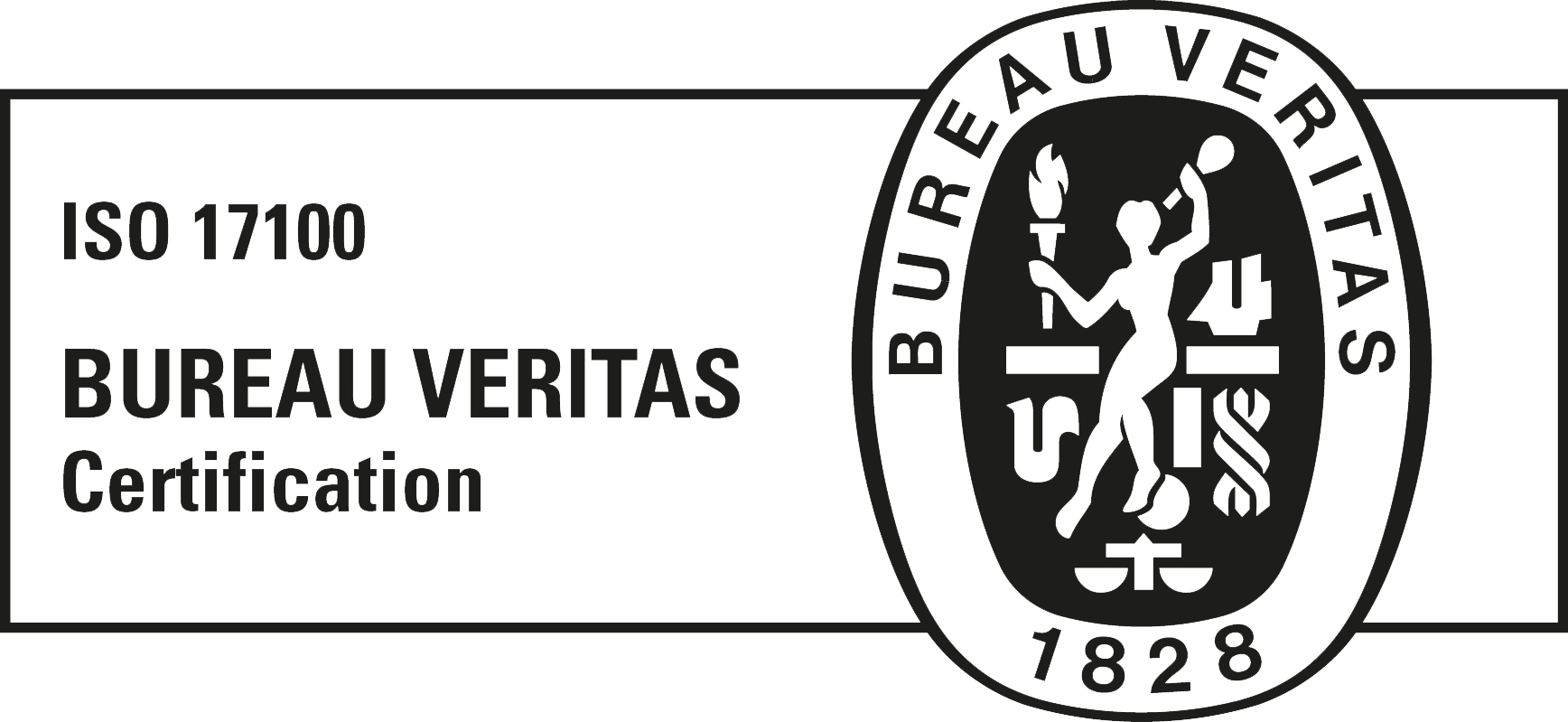TRANSLATION FAQ
Frequently Asked Questions about our Translation Services
01 - What is a translation service?02 - What is a technical translation?
03 - What is a certified translation?
04 - What is an apostille?
05 - What is the difference between a project done by a freelancer and a project done by a language services company?
06 - What is the difference between a NORMAL service and a NAT+ service?
07 - Who are the professionals involved in the translation process?
08 - Why is DTP not included in the translation service?
09 - How is the quote for my translation project calculated?
10 - What is the difference between a normal delivery deadline and an emergency delivery deadline?
11 - What kinds of documents can AP | PORTUGAL translate?
12 - What is ISO 17100.2015?
13 - ?What can I do if the translation is not up to my expectations??
14 - What is the difference between translation and revision?
15 - What is the difference between revision and proofreading?
16 - What?s involved in a proofreading service?
01 - What is a translation service?
A translation service involves transferring content from one language to another. Our specialist translators at AP | PORTUGAL can provide technical translations in many areas such as law, politics, economics, science and business. We can translate any kind of document to or from more than 20 languages (English, French, Spanish, German, etc).
02 - What is a technical translation?
A technical translation is a type of translation that requires specialist knowledge in a given field. To ensure accuracy, AP | PORTUGAL only works with translators who specialise in particular fields.
03 - What is a certified translation?
A translated legal document can be certified by an official organisation, entity or person recognised by the law of the country in which you wish it to be legally valid. AP | PORTUGAL has specialist collaborators working in several fields where certification is often required, such as law, finance and business. Please consult the website of the Chamber of Notaries to find out more about the rules for certified translations.
An apostille consists of filing a public document with an Apostille or annotation that certifies the authenticity of a document issued in another country. The benefit of this is that documents issued in one member country that have been certified by an Apostille will be recognised in any other member country without any other authentication.
A work proposal is set by a certain cost per word. Working with a freelancer, 100% of the quoted price will go towards translation. With translation services from AP | PORTUGAL, 40% will go towards translation, 18% for revision, 12% for proofreading, 18% for quality control and TSS, and 12% for coordination and CATTI technical support.
06 - What is the difference between NORMAL and NAT+ services?
All our translations are provided by native speaker translators. However, an NAT+ service guarantees that your project will be translated by a native translator from the country speaking the language that you need your project to be translated to, i.e. an Australian native speaker of English will translate your project to Australian English.
07 - Who are the professionals involved in the translation process
A translation service at AP | PORTUGAL involves a project manager, a translator, an editor and a proofreader, each of them working at different stages of your project in order to guarantee the highest quality in the end product. There are several differences between a project managed by a freelancer and a company like AP | PORTUGAL.
08 - Why is DTP not included in a translation?
DTP, Desktop Publishing, is not a language service. AP | PORTUGAL has a highly skilled and experienced team of graphic designers who provide a DTP service with the help of the latest software and applications necessary for your project, whatever the language, size, format or platform. The team has years of experience in graphic design and editing and can work with a large variety of tools in order to meet the market's various needs.
Our DTP professionals use a variety of tools, including: Excel®; Microsoft Powerpoint®; PageMaker®; Adobe Acrobat®; Adobe Photoshop®; Adobe InDesign®; Adobe Illustrator®; Adobe InDesign®; Macromedia Freehand®; Macromedia Flash®; CorelDraw®.
09 - How is the quote of my translation calculated?
The price of your translation project is determined according to the following criteria:
- source and target languages;
- format of the original document;
- project topic and size (number of words);
- required delivery deadline.
10 - What is the difference between a normal delivery deadline and an emergency delivery deadline?
For a normal delivery deadline for translation projects, AP | PORTUGAL analyses your document and determines a reasonable deadline for both the client and the professionals. For emergency deadlines, an additional fee will be added to the price of the translation service.
11 - What kinds of documents can AP | PORTUGAL translate?
AP | PORTUGAL can translate any kind of document, from CVs, certificates, letters, articles, reports, brochures, catalogues, books, websites, softwares, etc.
Here is a list of formats that we can work with directly:
* Word
* Excel
* Powerpoint
* HTML
* XML
* ASP
* INDESIGN
* PAGEMAKER
* QUARK
The Quality Standard ISO 17100, published in 2015 by the International Organization for Standardization for Standardization, aims to define quality requirements and certify translation services throughout the different steps of the translation process - human and technological resources, quality management, project records, legal framework procedure, value added services, and definitions of terms.
AP | PORTUGAL, always stay dedicated to their mission: growth through quality. AP | PORTUGAL is one of the few ISO 17100:2015 certified translation companies in Portugal.
13 - "What can I do if the translation is not up to my expectations?"
If the translation provided is not up to your expectations, please contact us, specifying where the translation does not meet the quality expected:
Syntax/Grammar/Punctuation - phraseology, abiding by rules of the language;
Semantics, terminology - use of specific terms for the subject area;
Spelling - words correctly written;
Style - writing style of the writer/translator.
AP | PORTUGAL will do its best to improve these aspects. That said, a translation is always a reflection of an original text, i.e. the quality of the original text has an influence on the quality of the translation. In addition to translation services, AP | PORTUGAL also provides a wide range of language services, such as content adaptation and copywriting, helping our clients break down barriers to reach new markets.
14 - What is the difference between translation and revision?
A translation service is about transferring contents from one language to another, always respecting the quality of the original text. After your project has been translated, a specialist revisor will compare the original text with the target text, making sure that your project?s message has been respected and is suitable for your target market.
15 - What is the difference between revision and proofreading?
In a translation service, before the translation is sent to the client, all work is re-read, edited and proofread, ensuring that you gain 100% accuracy.
In a revision, the original text and the target text are compared to check if the original text was respected.
In a proofreading, only the target text is analysed with special attention to certain categories (see question below "What?s involved in a proofreading service?").
16 - What's involved in a proofreading service?
Proofreading is the last stage of a translation service. Unlike revision, proofreading only looks at the target text. Translation is more than simply transferring of a text from one language to another. Once your project has been translated and revised, the translation is read again with special attention to the following points:
- grammar (verb agreement, gender);
- spelling (spelling mistakes, accents);
- punctuation (pagination, typographic rules of each language);
- phraseology (syntax, speech fluidity, idiomatic expressions);
- coherence (text coherence, sentence formation, vocabulary, omissions);
- language level (tone, formality);
- style (The translator may have their own style, but it should respect that of the original author).
Each of these linguistic aspects plays a fundamental role in the quality of the translated final product.

WE ARE MEMBERS OF THE FOLLOWING INTERNATIONAL ASSOCIATIONS
A TRANSLATION COMPANY CERTIFIED BY THE INTERNATIONAL ORGANISATIONS
For more information, contact AP PORTUGAL via the Portuguese Association of Translation Companies (APET), the Portuguese Association of Translators (APT) or via one of our offices in Lisbon or Porto.
Certified translation agencies build bridges between cultures and are first-class partners for internationalisation projects. Contact us today!









